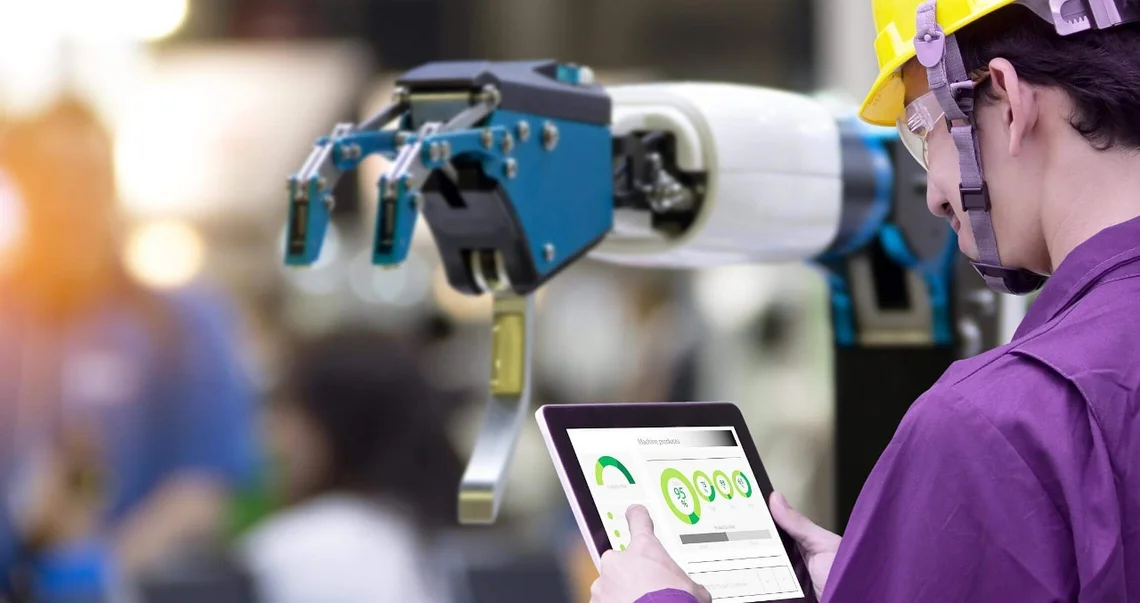Digital banking for business
Seamlessly access all of your accounts from one place with First Citizens Digital Banking for business.
A new industrial revolution is underway—and like the large-scale economic disruptions of the past, it's completely changing the way you, your peers and your competitors do business.

In the Fourth Industrial Revolution—also known as Industry 4.0—technology moves from being a tool that's applied to processes to one that's fully integrated with virtually everything your business does. While it initially drew attention for the flashy devices and platforms it's built upon, the stunning developments of this industrial revolution are increasingly becoming standard for getting business done efficiently and profitably. Data analysis, machine learning, automation and artificial intelligence, or AI, are no longer elements of the future—they're elements of the present.
Disrupted supply chains, production processes, safety procedures and the core concept of the workplace are all conversations that came out of one of the most profound global crises in modern history—the COVID-19 pandemic.
Facing both a sharp falloff in demand and a workforce urged to stay at home to keep family and loved ones safe, business owners scrambled for survival. Although government aid programs provided some relief, savvy leaders pivoted their businesses to meet new market demand.
Frequently, the new business approaches demanded by COVID-19 relied on Fourth Industrial Revolution technologies such as:
As the economy gradually reopened and employees were welcomed back to the office, many small businesses had to incorporate new processes to the workplace, including:
These advancements helped business leaders address the realities of a global pandemic, and in turn, better prepared companies to manage the variables of the future.
When you read any summary of the Fourth Industrial Revolution, it generally focuses on smart technology, driverless vehicles and the internet of things. These may not seem immediately applicable to your manufacturing business, depending on your operations.
Dig a little deeper, however, and you'll see that more extensive integration of advanced technology is already helping companies do things like:
Ultimately, the Fourth Industrial Revolution involves incorporating technology-fueled innovation into the core of everything your company does to shape more efficient and effective processes.
The optimal Industry 4.0 plant is a long way off, but advances are already surfacing in many industries—often resulting in enhanced performance and improved processes. Larger manufacturers tend to be the first adopters of these new innovations. As results from their initial efforts emerge, you could consider incorporating relevant elements into your business planning, including:
As with most new concepts you implement, the tools of the Fourth Industrial Revolution will require an investment of time, money and resources. Although the immediate benefits may be tough to see, you'll be laying the foundation for your business to continue to thrive well into the future.
Email Us
Please select the option that best matches your needs.
Customers with account-related questions who aren't enrolled in Digital Banking or who would prefer to talk with someone can call us directly.